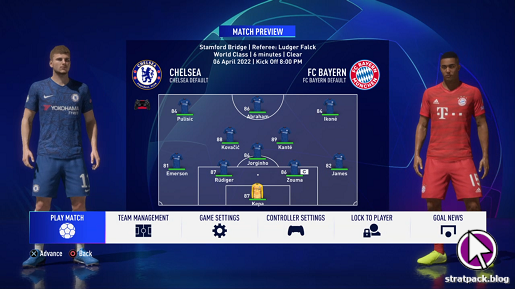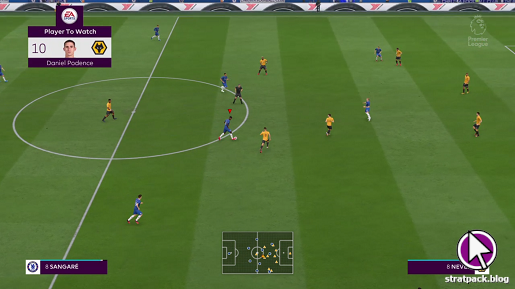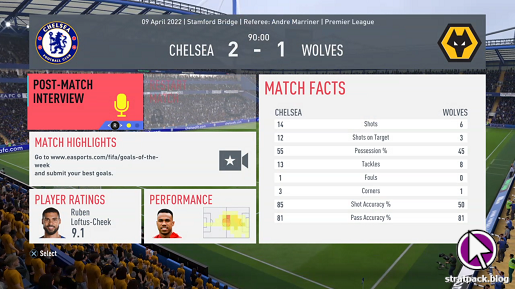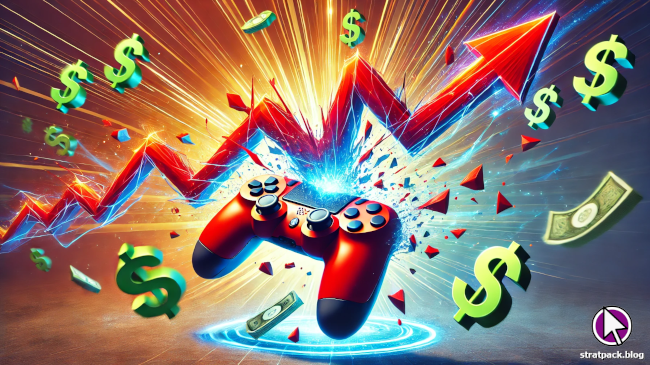
In defence of scripting in football games
Spend any length of time reading online forums for football games and you’ll come across complaints about “scripting” - the alleged way games like FIFA and PES artificially infuence games to create drama. This quirk of games’ design and programming is always portrayed in a negative light, and often rightly so, but I’d like to make a case for why it makes sense and improves the gameplay experience in certain circumstances.

What is scripting?
According to the critics, “scripting” - sometimes also referred to as “momentum” - is a perversion of the way football games should play. Unlike real football, FIFA matches are under the complete control of a match engine, and by extension, the developers. And there have been accusations for years that EA Sports (and Konami, before eFootball killed the PES series) has abused this power to create as much drama as possible.
To those who are on the lookout for potential foul play, this invisible hand makes itself known in semi-predictable ways, usually to give teams suffering heavy losses a fighting chance or to prevent the player team from running away with every match, or the league title. Some of the most common complaints allege that scripting:
- Makes goals easier for both teams to score in the final minutes
- Causes shots to hit the post, passes to go off course, etc. when the game doesn’t “want” the player to win the game
- Grants even the weakest opponents - and in particular goalkeepers - superstar skills if the game favours them in the match
- Ensures Career Mode rivals win the player wins, draws when the player draws, etc. to keep the title race as close as possible
Many players say the biggest giveaway that scripting has taken effect is when one team has far more possession and shots on goal but fails to win. This has become something of a meme, particularly in the stats-obsessed world of Football Manager, and was probably at least partly responsible for the emergence of the expected goals (xG) metric in the real game.

Some of this may be coincidence, of course, and the big teams do suffer these frustrating matches in the Premier League and beyond. EA has denied that it scripting exists in FIFA (as far as I know, Konami has never spoken on the issue), so it could be that what is observed is not the result of an algorithm designed to control the outcome of matches, and instead a culmunation of all the systems that simulate form, fatigue, skills, and so on.
But the frequency of these events has convinced some players that scripting exists. What would be the developers’ motive to implement it, you might ask? The purported answer is that the added drama makes the game more emotional and therefore more addictive, as well as encouraging less skilled players by ensuring they always have a chance at securing a freak win.
Nobody except the developers knows whether scripting really exists in any given game, or to what level it influences matches, but I’ve seen enough evidence in my own play to suspect it’s there in some form. The assumption I’m never sure about, however, is that a “pure” football game would play better. The scripting rumours have persisted in one form or another since the mid-2000s, and there have been some great football games in that time. So when does it work and when does it not?
When scripting works
First, I will concede that scripting would be very frustrating in online game modes, where you usually only play each opponent once and therefore don’t have a chance for the luck to level out. It would also affect online rankings, promotion and relegation from divisions, and so on. It would be even worse if it spanned to modes where money is involved, but we have at least had confirmation from EA that there is no scripting in Ultimate Team.
But offline, I believe it can actually create a more enjoyable experience. This is certainly not the case my Chelsea side visit Burnley and lose to two wonder goals, but it can certainly liven up games against weaker teams. Statistically you’d expect the big club to pervail comfortably, but that’s not always the case in real life and constant 3-0 wins would get boring.

Some of my best FIFA games have been those where everything seems to be going the opposition’s way. When I play Southampton at home and they park the bus I can spend nearly the whole game trying to pick apart the AI’s defence, their goalkeeper performing all kinds of acrobatics when I get the odd shot away. When a chance falls to my striker with two minutes to go I expect him to miss because he’s barely been able to control the ball for 88 minutes, but when the ball hits the back of the net and secures the 1-0 win, that hard-fought triumph is one of the best feelings in the game.
The “scripting” - or at least the randomised part of the game that leads people to believe there is scripting - leads to added challenge and interesting stories in games that might have been nothing but boring domination. This reflects real life matches, when big teams have off days against bottom-of-the-table sides using very defensive setups, and really adds tension to the in-game title battle when I know City and Liverpool are winning.
In short, scripting or not, unpredictability is what makes football the world’s favourite sport and what makes football games worth playing.

















